Dear Friends
I stepped outside to get some wood to the hungry maw of the woodstove (wood is our only source of heat), and each step of my boots squeaked in the dry, hard snow of the path. I can guess the temperature within 10 degrees just by the way the snow sounds. We have over 2 feet of snow over most of the ranch and with that and the cold, work outside doubles.
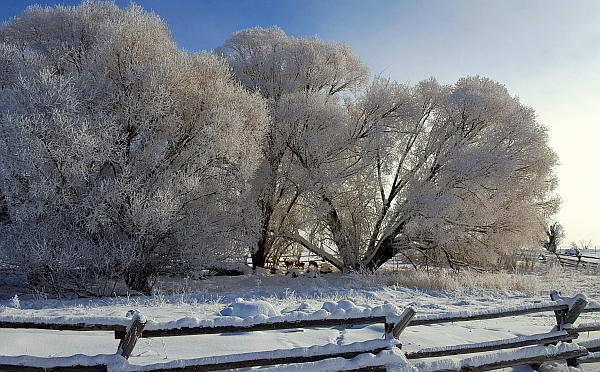
Once again, it’s Saturday night, and too late for a newsletter of any length. The cold is supposed to break this week, but the past several days have been reaching into the 30s of below zero, with daytime highs never reaching more than minus 10. And that’s in full sun.
It means we feed half again as much hay to our beeves and horses, and have to fight to keep water running. That’s a challenge when the air temp is more than 60 degrees below the point at which water freezes. As of today, 3 water tanks have frozen solid that come from deep in the ground. I wonder what the frost line is in our soil; usually we see frost down to 3 feet; by now with the cold we’ve had, I’m very glad that 12 years ago we buried our water lines 7 feet down in the volcanic loam. This is the first winter I’ve thought about it since; we’ve not seen it this cold.
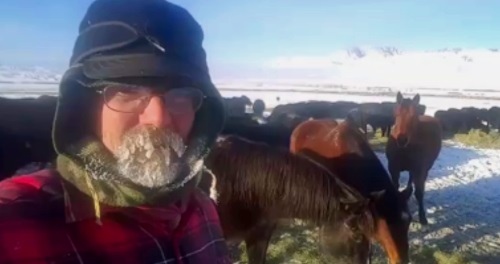
I avoid starting engines at all costs, but sometimes we need vehicles on our 1650 acres. Walking can be rough, even mortally dangerous with risk of exposure. Ethan, Abby, Josh, and I were fencing after sundown 2 nights ago, and Ethan got a touch of frostbite on his toes. His hands were near there, but he drove off to the bunkhouse and thrust his hands under warm water for 10 minutes or so to save them from frost damage. I did the same thing three days ago, and it isn’t fun. The pain of fingers coming back can be excruciating.
So, to prevent frostbite, we drive to cover any distance, provided a vehicle starts without breaking. Three of our ranch pickups are dead. One tranny seized up, one steering column broke and shattered (it’s still 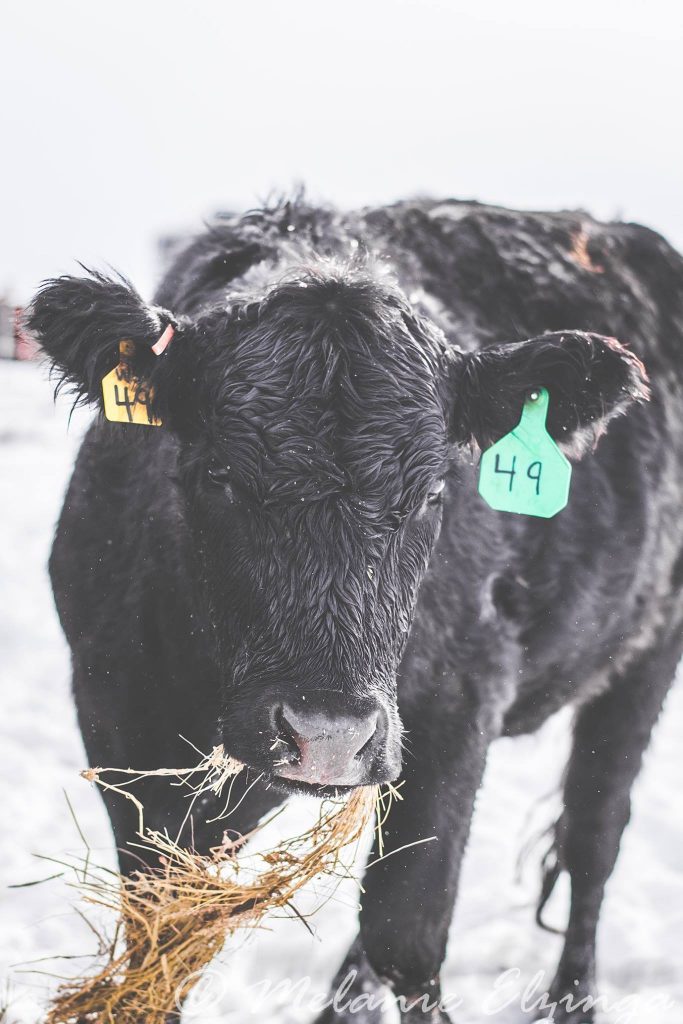 in a distant field, abandoned and snowed in), and one has oil that nearly solidified with cold. Machines have no place in the cold. They break and shatter. The cold makes me realize how we are, as humans, often really poorly adapted to our natural surroundings.
in a distant field, abandoned and snowed in), and one has oil that nearly solidified with cold. Machines have no place in the cold. They break and shatter. The cold makes me realize how we are, as humans, often really poorly adapted to our natural surroundings.
In contrast to my trucks, the beeves and horses look good. In fact, they even continue to gain weight in the cold. They were full and happy as I fed them today. Disposition is easy to read in a bovine; they don’t hold their cards very close. It’s also nice that they have their long, black hair coats on. When the subzero sun is high, they’ll orient themselves broadside to the skyward source of radiant heat to maximize the collection of radiation.
At night, they bed themselves down on hay, clustered in the field, quietly resting while chewing cud under some of the darkest and starriest skies left in America. The Milky Way lives up to its name on these brittle nights, and the snowy landscape is lit by starlight to a twilight-like visibility even before the moon arrives. It’s a beauty that we enjoy often, because we’re still working out there for part of many nights.
And it’s our good pleasure because we practice what we call husbandry. It’s stronger than just stewardship; when you have animals in your care and partnership, a sort of marriage goes on. And that’s why it’s husbandry. I only sleep when I know they are well.
Thanks for being part of us.
Glenn, Caryl, Girls and Cowboys at Alderspring.

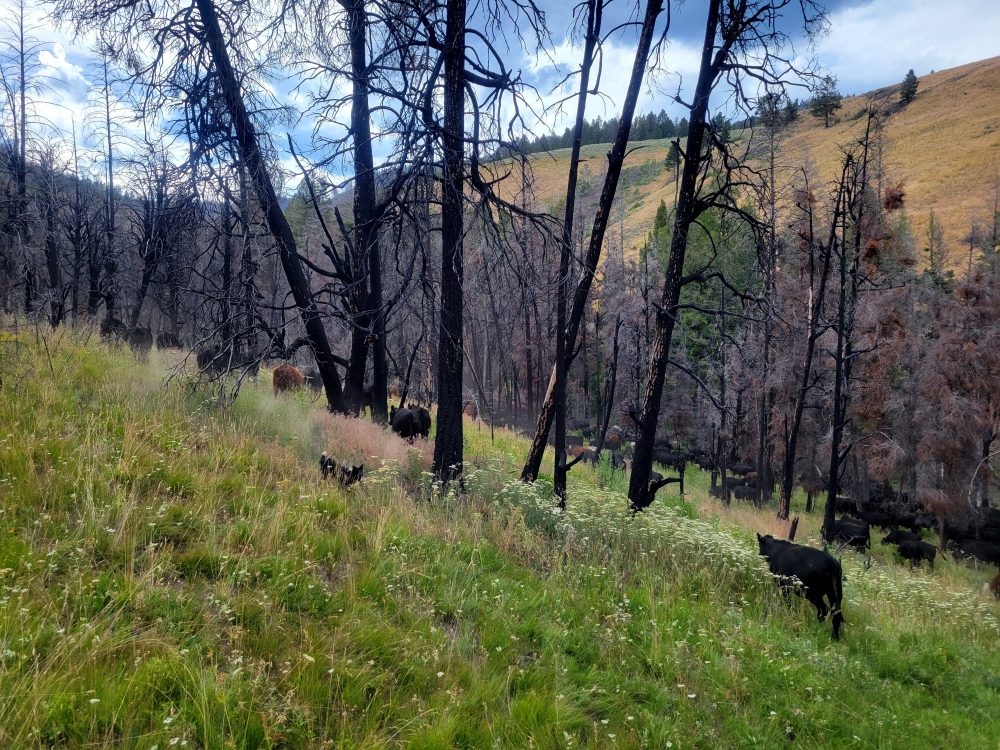


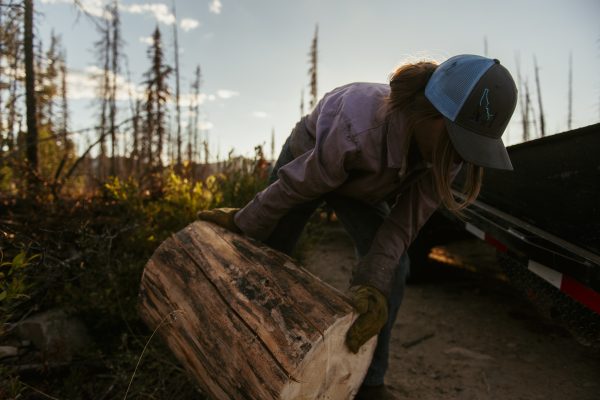
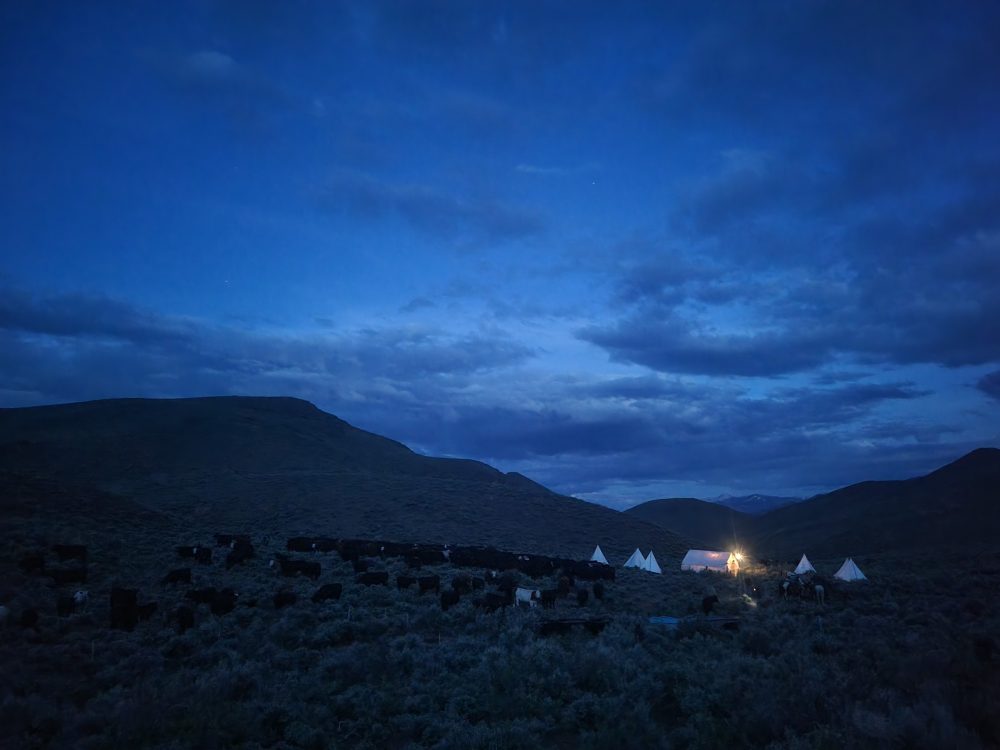

Leave a Reply